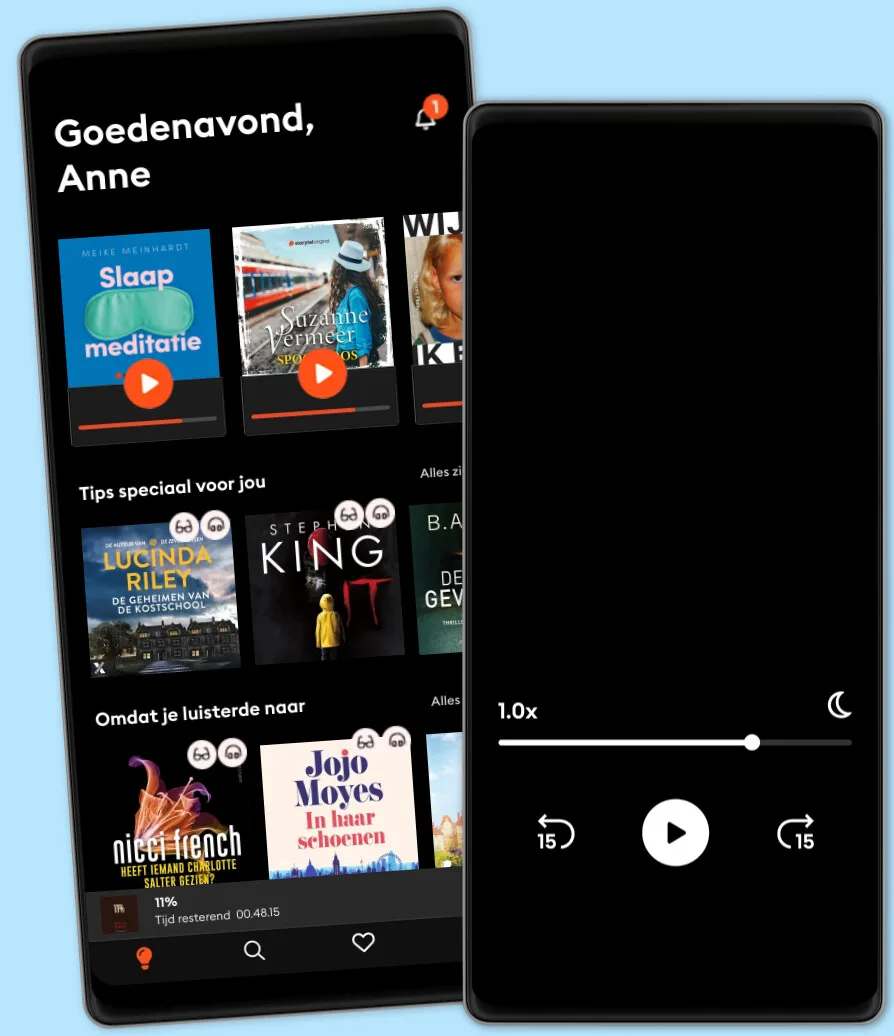Luister en lees nu 30 dagen gratis
Tijdelijke zomeractie: ontdek Storytel nu 30 dagen gratis. De aanbieding loopt tot 1 september. Meer dan 1 miljoen luisterboeken en ebooks in één app.
- Switch makkelijk tussen luisteren en lezen
- Elke week honderden nieuwe verhalen
- Voor ieder een passend abonnement
- Opzeggen wanneer je maar wilt

Mute Poetry, Speaking Pictures
- Door
- Uitgever
- Serie
1 of 3
- Taal
- Engels
- Format
- Categorie
Non-fictie
The skirmish between painting and poetry—from Plato and Praxiteles to Rembrandt and Shakespeare
Why do painters sometimes wish they were poets—and why do poets sometimes wish they were painters? What happens when Rembrandt spells out Hebrew in the sky or Poussin spells out Latin on a tombstone? What happens when Virgil, Ovid, or Shakespeare suspend their plots to describe a fictitious painting? In Mute Poetry, Speaking Pictures, Leonard Barkan explores such questions as he examines the deliciously ambiguous history of the relationship between words and pictures, focusing on the period from antiquity to the Renaissance but offering insights that also have much to say about modern art and literature.
The idea that a poem is like a picture has been a commonplace since at least ancient Greece, and writers and artists have frequently discussed poetry by discussing painting, and vice versa, but their efforts raise more questions than they answer. From Plutarch ("painting is mute poetry, poetry a speaking picture") to Horace ("as a picture, so a poem"), apparent clarity quickly leads to confusion about, for example, what qualities of pictures are being urged upon poets or how pictorial properties can be converted into poetical ones.
The history of comparing and contrasting painting and poetry turns out to be partly a story of attempts to promote one medium at the expense of the other. At the same time, analogies between word and image have enabled writers and painters to think about and practice their craft. Ultimately, Barkan argues, this dialogue is an expression of desire: the painter longs for the rich signification of language while the poet yearns for the direct sensuousness of painting.
© 2012 Princeton University Press (Ebook): 9781400844784
Publicatiedatum
Ebook: 25 november 2012
Tags
- Afl. 1 - Het dubbelleven van Rose Milou Deelen
3.2
- Al het blauw van de hemel Mélissa Da Costa
4.7
- Longeneeslijk: Hoe mijn kanker pure pech én puur geluk kon zijn Hanneke Mijnster
4.7
- B&B Toscane - Geheim verleden Suzanne Vermeer
3.8
- Liften naar de hemel Lex Paleaux
4.7
- De erfenis: Het is alles of niets. Laat het spel beginnen. Jennifer Lynn Barnes
4.3
- De Camino Anya Niewierra
4.6
- Als de wolven huilen Kristin Hannah
4.5
- Dageraad boven de boete: Nederlandstalige editie Suzanne Collins
4.7
- Het verkeerde kind: Een moeder met een duister geheim. Een dochter met een dodelijk dilemma. M.J. Arlidge
4.4
- De verborgen belofte Lucinda Riley
4.4
- Slaapmeditatie: 30 minuten meditatie voor ontspanning en slaap Meike Meinhardt
4.2
- Beladen huis Christien Brinkgreve
4.2
- Voor altijd jong: Mijn leven met kanker Jade Kops
4.9
- Lieg nooit: Soms is de waarheid dodelijk Freida McFadden
4.3
Maak je keuze:
Voor ieder een passend abonnement
Kies het aantal uur en accounts dat bij jou past
Download verhalen voor offline toegang
Kids Mode - een veilige omgeving voor kinderen
Unlimited
Voor wie onbeperkt wil luisteren en lezen.
1 account
Onbeperkte toegang
Meer dan 1 miljoen luisterboeken en ebooks
Altijd opzegbaar
Premium
Voor wie zo nu en dan wil luisteren en lezen.
1 account
30 uur/30 dagen
Meer dan 1 miljoen luisterboeken en ebooks
Altijd opzegbaar
Flex
Voor wie Storytel wil proberen.
1 account
10 uur/30 dagen
Spaar ongebruikte uren op tot 50 uur
Meer dan 1 miljoen luisterboeken en ebooks
Altijd opzegbaar
Family
Voor wie verhalen met familie en vrienden wil delen.
2-3 accounts
Onbeperkte toegang
Meer dan 1 miljoen luisterboeken en ebooks
Altijd opzegbaar
2 accounts
€18.99 /30 dagenNederlands
Nederland